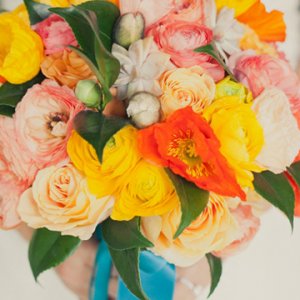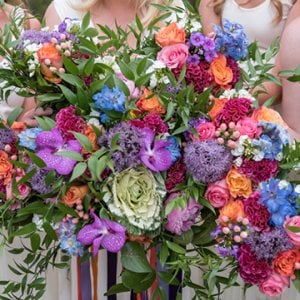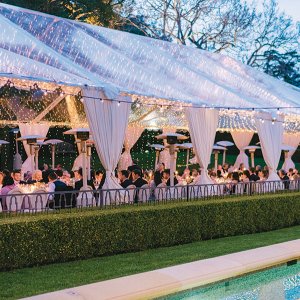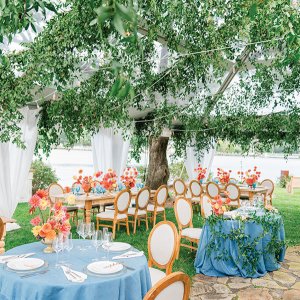Here are some of the important factors you should keep in mind when you design your bridal bouquet.
By: Kyla Stelling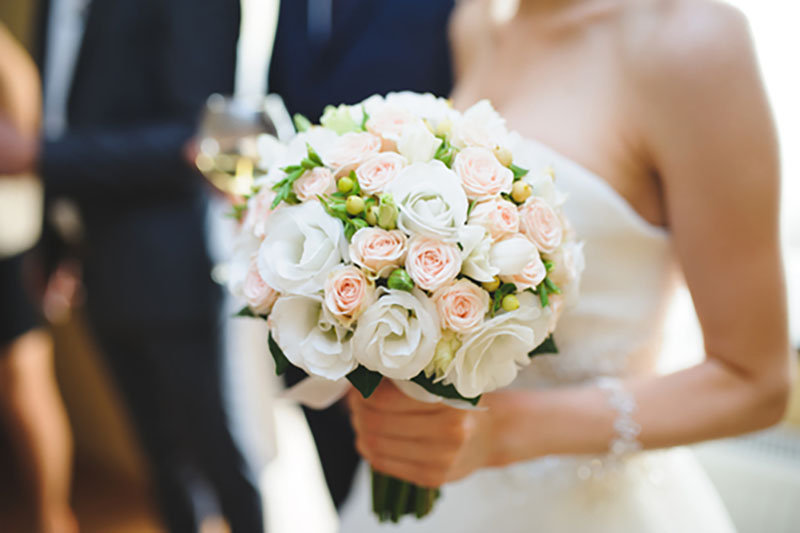
Photo Credit: Shutterstock
Your bridal bouquet is the centerpiece of your wedding florals — it's the accessory that will accompany your beautiful gown and be pictured in every photo, so its design should surpass your expectations. But how do you create the perfect bouquet? Florists can only guess so much — it's important you know how to clearly explain what you want. Additionally, the more knowledgeable you are about flower varieties and pairings, the more you can customize your bouquet. Here, four aspects you should consider when selecting your bridal bouquet.
Seasonal
Just like produce, flowers will be of better quality when they are in season. Your bouquet should be composed of fresh, colorful florals that are in their prime, rather than wilt-prone flowers that aren’t grown as naturally. A seasonal arrangement also allows the discovery of flowers you never knew you enjoyed. You will have more opportunity for exploration and can create a very unique bouquet.
Once you’ve settled on a date and a flower provider, check with your florist about their seasonal varieties. Ask them about the flower farm they source from and they can retrieve more information from the farmer for you. Check our seasonal floral chart, which will help you independently research which flowers can logistically be used on the big day.
Theme
When you meet with your florist, bring examples of your wedding inspiration. A visual mood board or collage will help your florist understand the vibe of your wedding. For example, if your wedding carries the theme of a fiesta, your florist can design your bouquet as lively and fun, using succulents and brightly-colored peonies. A more monotone, classic, Art Deco wedding calls for simple floral arrangements that accompany the geometric design elements of your décor. In this case, your bouquet should be simple and have flowers that are more structured, like calla lilies and ranunculus.
Favorite Flowers
Let your florist know about your favorite flowers so they can be incorporated into your bouquet. This wedding is a representation of your personality, as well as your partner’s personality; make sure you are properly represented. Keep in mind what flowers are available, at the time of your wedding. For example, if you love lilacs, they can be sourced for a springtime wedding. Keep your location in mind as well — most flower varieties can be grown anywhere; however, they may be more rare in certain regions. If you're planning to DIY your flowers, it's most convenient to shop online. An online shop helps you view what is available, and you can even find the nearest retailer that can help create the arrangement. For example, if roses are a must-have, FTD can locate or ship them right to your door.
Color Scheme
The color scheme of your bouquet is crucial. If the bouquet clashes with any of your other wedding colors, it will detract from the overall aesthetic. You also don’t want your bouquet bursting with too many bright colors, as it will stand out too much in photographs. You need a solid balance of neutral and colorful. And it's not just the flowers themselves that you need to worry about — don't forget about the filler, which can also clash with any of your apparel or décor colors. Utilize paint chips or strips for the identification of your color scheme. You can show these colors to your florist and they can arrange your bouquet with complimentary hues. A wonderful color-matching resource is The Perfect Palette — it shows real-life wedding examples, as well as curates color boards that pull inspiration from multiple sources. The website attributes about five colors to each of the looks, which is a helpful guide for your color scheme decisions.

